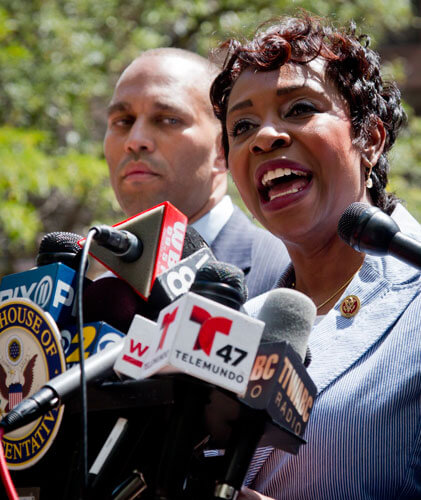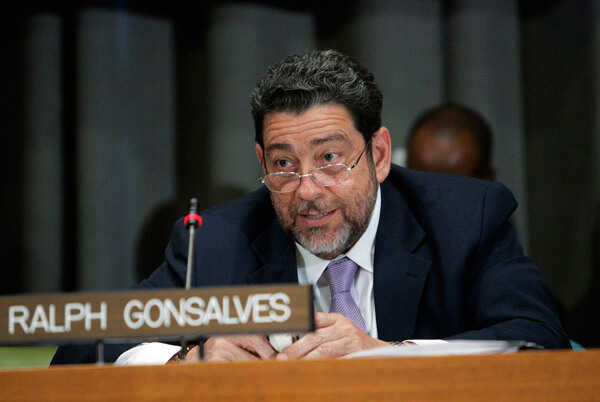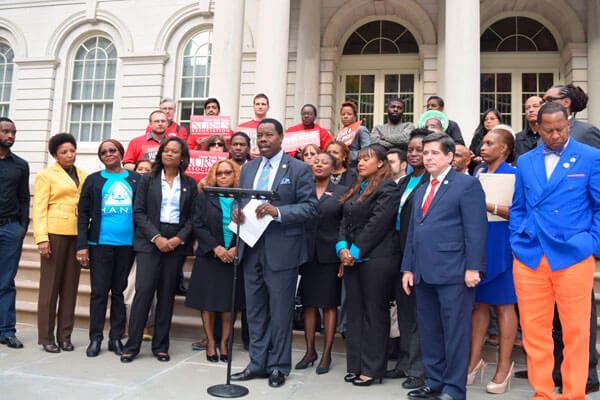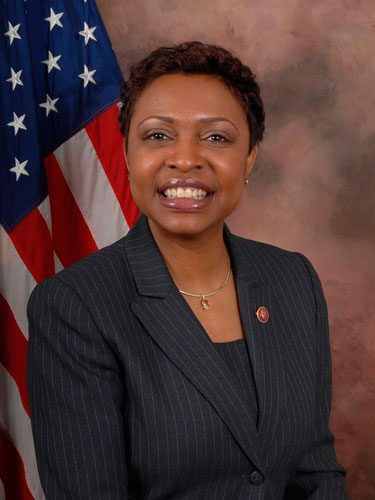Brooklyn Democratic Congressional Representatives Yvette D. Clarke and Hakeem Jeffries have called for a probe into the dissolution of Guyana’s National Assembly.
In a letter to U.S. Secretary of State John Kerry, Clarke and Jeffries said on Monday that they were deeply concerned that Guyana’s President Donald Ramotar dissolved the National Assembly “in an apparent attempt to prevent general elections and maintain himself in authority indefinitely.”
“We are deeply concerned by the decision of President Donald Ramotar of Guyana to dissolve the National Assembly when members started to debate a motion of no confidence,” they wrote.
“Democracy cannot exist without the consent of the government — in a republic such as the United States or Guyana, expressed by their elected representatives,” they added.
Under the Constitution of Guyana, the congressional representatives noted that the National Assembly has the authority to enact a motion of no confidence which, if successful, requires general elections within three months.
“The apparent attempt by President Ramotar to prevent general elections has effectively disenfranchised the people of Guyana by precluding a majority of the members of the National Assembly from acting in the interests of their constituents,” they said.
They urged Kerry to “investigate this situation in collaboration with the community of nations and to work with elected officials in Guyana to secure fair elections in which the people have the ability to control the future of their nation.”
On Jan. 20, Ramotar, who had suspended Parliament in November to avoid a no-confidence vote, announced that general elections would be held on May 11. Ramotar’s People’s Progressive Party (PPP), which is dominated by Indo-Guyanese, has held power for more than 20 years.
But it fell short of a majority in the assembly in 2011 with the rise of a multiethnic third party as a political force, according to the New York Times.
It said the two main parties have traditionally hewed to racial lines: one drawing support from the descendants of Africans, the other from the descendants of Indians.
Ramotar said he intends to invite international observers to observe the general elections.
“I will expect the political parties, the security services and the people of Guyana to conduct themselves in a manner that would ensure continued peace and stability before, during and after the elections,” he said in a nation-wide address on Jan. 20.
“We have a collective obligation to ensure the protection of the democratic gains we have made and for which we have endured so much as a nation to secure,” he added.


























